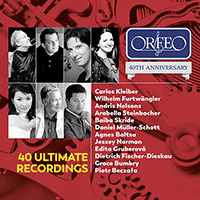
Stanisław Moniuszko (1819 - 1872)
Stanisław Moniuszko was a Polish composer, conductor and teacher who wrote many popular art songs, operas, operettas, ballet and incidental works, with his music being particularly notable for its patriotic folk themes from the former Polish-Lithuanian Commonwealth.
Moniuszko was born on 5 May 1819, Ubiel in the Minsk Governorate. In 1837 he left for Berlin, where he took private instruction in harmony, counterpoint, instrumentation and conducting with Carl Friedrich Rungenhagen, the director of the Singakademie Music Society. Having spent three years in Berlin, Moniuszko returned to Poland in 1840, where he married Aleksandra Müller and settled down in Vilnius, where he took the organist’s position at St John’s, and is credited with reviving the local music scene with concerts of both choral and orchestral music. At around the same time, Moniuszko travelled to St Petersburg to introduce its audiences to his own compositions. His music was received with acclaim and had favourable reviews from some of Russia’s leading composers and musicians, including Mikhail Glinka and César Cui.
In 1848, Moniuszko’s opera two-act version of the opera Halka had its premiere staging in Vilnius, conducted by the composer himself. A decade later, following the triumphant Warsaw premiere of the four-act version of Halka on 1 January 1858, Moniuszko was appointed the first conductor of the Polish Opera at the Teatr Wielki (Grand Theatre) in Warsaw on 1 August 1858. The same year, Moniuszko put on his one-act opera Flis, followed by the stagings of all of his subsequent operas over his 15-year term. Along with Halka, The Haunted Manor became a beloved work of opera-goers (premiere: 1865).
Moniuszko’s music has earned him widespread recognition in his home country, where he is widely referred to as ‘the father of Polish national opera’. He died of a heart attack on 4 June 1872 in Warsaw.
Biography supplied by Poznan Opera House

















